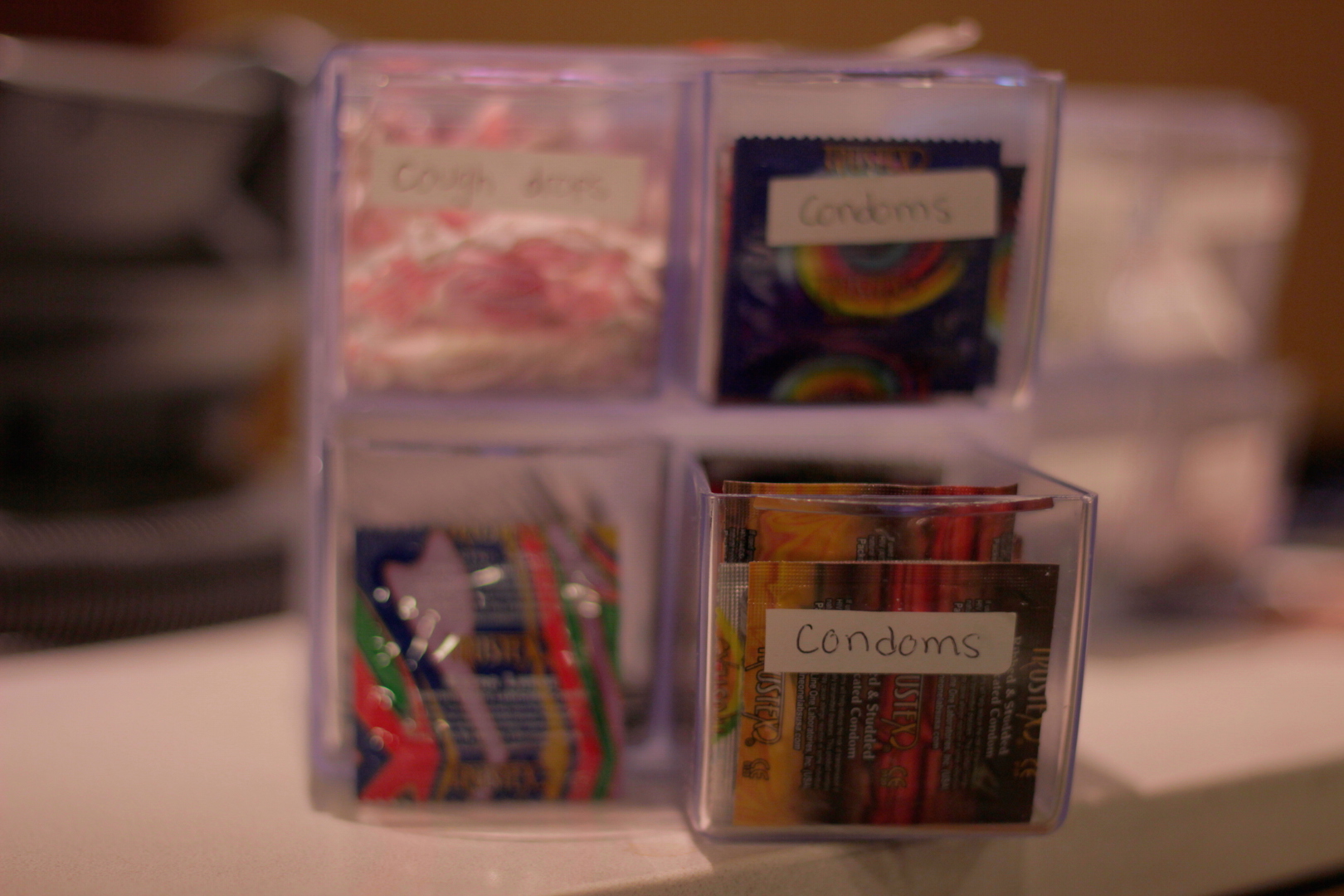
Though sexually transmitted infections (STIs) are not nearly as fun and pun-able to talk about as subjects like masturbation and oral sex, they are a part of sexuality that we need to be conscious about and open about discussing. These tough conversations need to happen so that one can be better educated and take responsibility of one’s actions.
Now, you most likely do not have an STI and that allows for a certain amount of emotional distance from the topic. But STIs can and do strike. It is possible that someone you care about or you will contract an STI, and ignoring the possibility only makes the likelihood of passing on an STI increase.
My personal precious little bubble of ignorance came crashing down within the past year. I was sitting in Counseling Health and Wellness Center for an appointment and my sex column came up (I’m a chatty Kathy, so sue me). The medical provider attending to my ailment mentioned that they see a lot of students with Chlamydia in students coming in to CHWS. Say whaaaat? Though I have less reason to be concerned about this than the average college campus, I was pretty floored by this.
Registered Nurse Practitioner at CHWS Lisa Robinson sees patients with Herpes, Chlamydia, and Genital warts (though the HPV vaccine has reduced incidence). On occasion, she also sees Scabies, Trichomonas and in women, Bacterial Vaginosis, which can be sexually transmitted through lesbian sex.
A prolific misconception is that if you wear a condom, you’re good. Yet it should be common knowledge that Herpes and genital warts can still be spread even if you bag it because the virus can be on surrounding areas that the condom does not cover. Also, most STIs can absolutely be spread through anal sex as well.
Another area for concern that I often think about is contracting an STI from oral to genital contact. According to Robinson, Herpes, Gonorrhea and maybe genital warts can be transmitted through oral sex.
How does one combat this, especially in the culture of a college campus? While condoms seem to be pretty mainstream for penetrative sex, I myself do not think to use a condom before I go down on a dude nor do I know anyone that to my knowledge does so.
Furthermore, when performing oral sex on a female, protection from an oral STI would require a dental dam. A dental dam is a barrier placed over the female genitals that can be made by cutting the tip off a normal condom and cutting down the side to make a square of latex.
The problem is, condoms do not taste great (unless they are flavored and even then, iffy). There is really no simple solution to this dilemma, but regular testing and active dialogue with partners about STI testing makes the situation a whole lot safer.
Robinson is very impressed by how much Puget Sound Students know about STIs, but acknowledges that the area that is most misunderstood is STI testing. Under the umbrella of testing, one misconception is that there is one big test for all STIs, and this is untrue. There are individual tests for each one.
“I usually recommend testing for Chlamydia, Gonorrhea and HIV,” Robinson said. “Right now, testing for these three STDs costs $86 at CHWS. Herpes testing costs $34-67. Syphilis testing is $11. A microscope test to check for Trichomonas or Bacterial Vaginosis is $5.”
Since this is pretty steep, price-wise, some students are pushing for free or further subsidized STI testing at CHWS. Students have started to send petitions around.
One suggested option by an individual leading the effort would be to raise student fees. Based on simple math, even $10 per person would allow $26,000 or so to have as a fund for STI testing. A student I spoke with told me that her ideal would be two free STI tests per semester.
Something that had not occurred to me was the necessity of multiple tests in some cases that accentuate the economical problem of high medical costs for STI tests. “There’s a possibility that even after treatment, you will not have necessarily rid yourself of the infection,” a junior said. “Getting tested for STIs is already really expensive so if you do test positive for one and get treated, you still have to fund another test after you receive treatment.”
The telltale signs to look for in dealing with STIs, according to Robinson, are burning with urination or unusual discharge in women and men, abnormal vaginal bleeding or pain with sex in women, genital sores or bumps, or unexplained fever/weight loss/ enlarged lymph nodes. If you or anyone you know experiences these symptoms, it is better safe than sorry to go into CHWS or elsewhere and get tested.
Though devastatingly we are in the middle of a political shitstorm involving Planned Parenthood’s funding, there are some options where students can seek some specific tests for less cost or free.
Robinson recommends one of the King County Public Health STD clinics, which one can look up online. The closest is in Federal Way and the fees are based on a sliding scale for income (and I would assume none of us students are not rolling in five figures or more). For free HIV testing, Pierce County AIDS Foundation. Robinson recommends calling first at (253)383-2565.
When was the last time you were tested?

